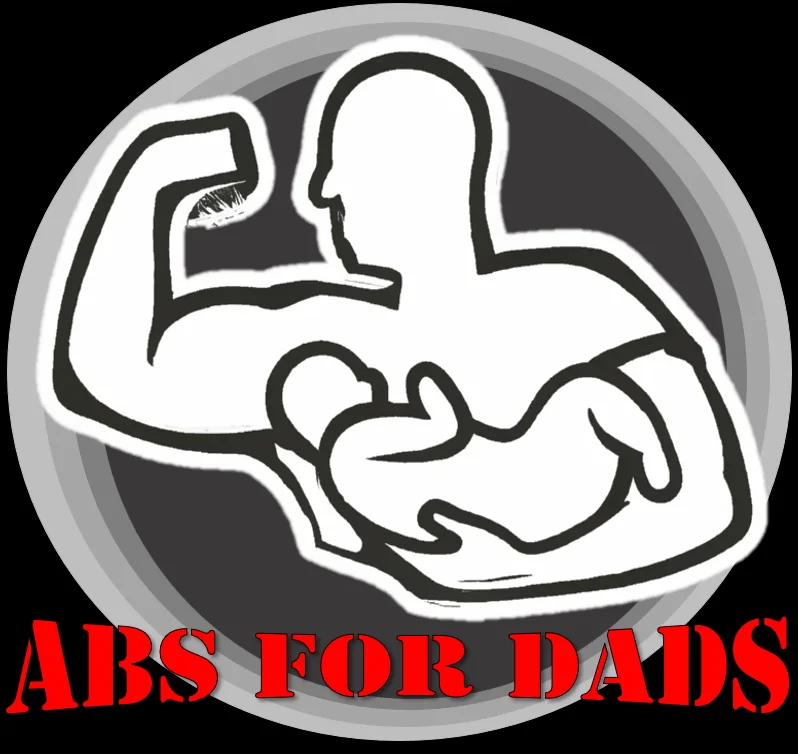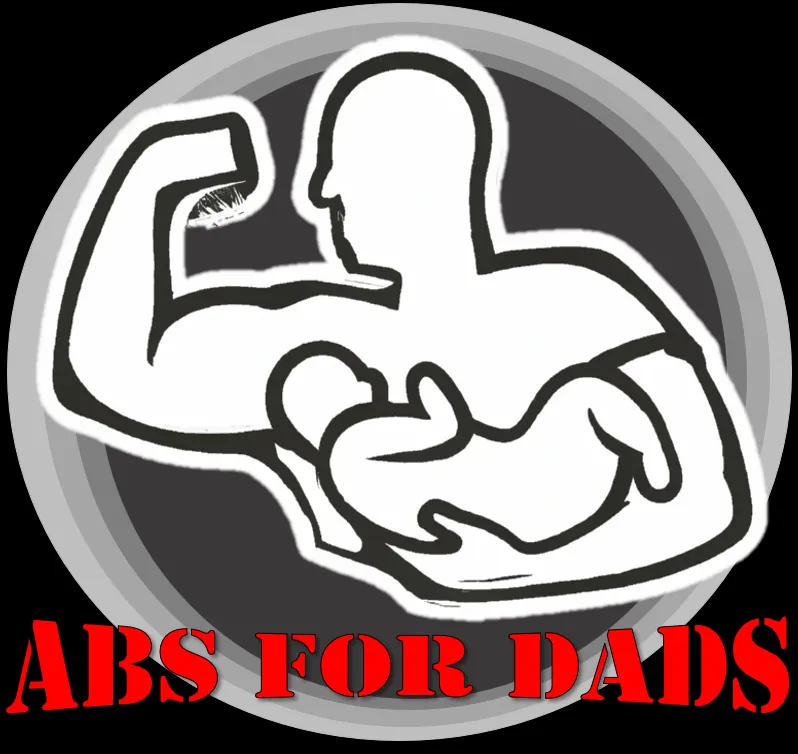THE BLOG
The Ultimate Fitness Blog for Dads
TOPICS
Welcome to Abs For Dads, your premier resource for time-efficient fitness solutions tailored for busy fathers. Discover practical tips and expert advice to transform your health and fitness, seamlessly integrating into your demanding schedule.

Fitness
Explore our curated fitness tips and routines designed to maximize efficiency for the modern dad. Whether at home or the gym, our time-sensitive workouts ensure you achieve optimal results with minimal time investment.

Nutrition
Unlock the secrets of hassle-free nutrition with our easy-to-follow meal ideas and delicious recipes. Abs For Dads empowers you to make informed food choices that align with your fitness goals, promoting vitality and strength.

Lifestyle
Enhance your overall well-being with our lifestyle hacks. From stress management to effective time optimization, our blog covers a spectrum of topics ensuring you achieve success in your fitness journey.

Creatine Monohydrate: A Busy Dad’s Guide to Boosting Muscle and Energy
Hey dads! Let's cut to the chase: you’re juggling the kids, your job, and probably trying to squeeze in some "me" time where you can actually hit the gym. It’s a lot like being a superhero, but without any superpowers—unless you count chugging coffee as a superpower. But you feel like there’s a ceiling to your progress. You know you’re working hard enough, and your diet has been on point, so what gives? Enter creatine monohydrate, your potential sidekick in the gym, which might just give you that extra edge you need. Let’s jump into what it can offer you, and give you the scoop on how to take it.
What Exactly is Creatine?
So, what is creatine, besides being a favorite buzzword in fitness circles? It's not just another supplement, but a naturally occurring compound that plays a pivotal role in how your body handles energy during those heavy lifts or sprints. Creatine is made from three amino acids: arginine, glycine, and methionine. Think of these amino acids as the building blocks that your liver, pancreas, and kidneys use to produce creatine.
Chemical Composition and Production
In scientific terms, your body synthesizes creatine mainly in your liver, pancreas, and kidneys. From there, it's transported in the blood and used by muscles that have high energy demands, such as your biceps when lifting groceries or your legs when chasing toddlers. But it’s not used for all energy exertions, as we’ll go over later. Creatine is your bodies primary energy source for the really powerful expressions of strength and explosiveness.
Why It Matters for Muscle and Brain
Creatine’s primary home is in your muscles and brain, where it’s crucial for quick energy production during high-intensity activities. Whether it’s a tough workout at the gym or an intense game of tag in the backyard, creatine helps provide the burst of energy needed for such explosive movements. Additionally, it supports brain health, aiding in cognitive functions, which comes in handy for keeping up with complex family logistics. The jury is still out on just how much creatine can do for the brain, but there have been studies that suggest it plays an impactful role in supporting cognitive processing.

Natural Production
Every day, your body naturally produces about 1 to 2 grams of creatine to meet regular muscle and brain function needs. This production ensures you have just enough creatine on hand for typical daily activities. However, for those looking to boost their performance at the gym or in daily energetic demands, supplementing with creatine can provide the additional energy reserves needed to perform at your best.
This naturally occurring compound is not just for the elite athletes; it's for every dad who needs that extra kick to power through a busy day and still have the energy to be active with the kids. By understanding what creatine is and how it functions in your body, you can make informed decisions about whether it’s the right supplement to help you keep up with both your fitness and your family life.
Dietary Sources
Creatine is naturally found in dietary sources such as seafood, red meat, and animal products like beef and pork. Vegetarians may have lower creatine levels due to limited intake. If you feel you aren’t producing enough on your own as a result of your diet or you want to realize benefits that can only be achieved through supplementation then looking into creatine powder will likely be for you.
Why Should Busy Dads Care About Creatine?
Boosting Performance and Energy
Creatine is particularly famous for its ability to increase high-intensity exercise capacity and lean muscle mass. This means more effective workouts, even if you’ve only got half an hour while the baby is napping. It helps regenerate ATP (adenosine triphosphate), which is the quick energy your muscles burn during heavy lifting.
Speedy Recovery
Juggling work and fatherhood means you can’t afford to be sore for days. Creatine can help speed up muscle recovery, reducing downtime between your workouts, which is crucial when you’re trying to keep up with kids that seemingly have endless energy.
Efficiency is Key
For dads, it’s not just about getting stronger; it’s about being efficient. Creatine helps you achieve more during your workouts in less time—precious time that could otherwise be spent on a date night or helping with homework. Consider the muscular benefits of being able to produce more work: if you can lift more volume of weight using the same time, then you’re providing a greater muscular stimulus than you otherwise would which directly contributes to muscular development.
How to Use Creatine Effectively
Timing and Dosage
The most common recommendation is to take 3-5 grams of creatine monohydrate daily. Timing isn't crucial, but many prefer to take it close to their workouts—either right before or after. Mixing it into your post-workout shake with some carbs can help with uptake and recovery.
Stay Hydrated
Creatine pulls water into your muscles, which is great for muscle function and growth but means you need to drink extra water. Staying hydrated is key to avoiding cramps and other side effects.
Load Up or Not?
There’s a debate about whether you need a loading phase with creatine, where you take around 20 grams per day for 5-7 days to saturate your muscles quickly. If you want to hurry up and see some of the benefits sooner, then go ahead and take 10 grams or so a day for a week, it won’t hurt anything. However, for busy dads, a simple daily dose without loading is effective and easier to stick with. If you stick to the regular 5 grams a day, your body will eventually saturate and you’ll get all of the same benefits regardless.
Creatine Monohydrate vs. Creatine HCL: Why Dads Might Prefer the Classic
For busy dads considering the best type of creatine, monohydrate often comes out on top. Think of it as the trusty station wagon of supplements: it’s not just effective, it’s also backed by a plethora of research guaranteeing its safety and effectiveness. While creatine HCL might be absorbed quicker and is easier on the stomach during a loading phase, creatine monohydrate offers the best bang for your buck, providing more proven benefits per scoop. Plus, it’s kinder on the wallet—a big win for any dad watching his budget. So, if you're looking for a reliable boost in the gym without any fancy frills, creatine monohydrate is the way to go.
Addressing Concerns and Misconceptions
Is Creatine Safe?
Yes, within recommended limits. Creatine has been one of the most researched supplements in fitness, and studies consistently affirm its safety for long-term use. However, if you have pre-existing kidney issues, it’s wise to consult with a healthcare provider first.
Will Creatine Make Me Bulky?
Creatine helps with muscle growth, but it won’t make you bulky unless you’re consuming more calories than you’re burning and specifically training for mass. For most dads, it will just help you look more toned and feel stronger.
Side Effects
Some may experience mild digestive issues or bloating when they first start taking creatine. These symptoms typically subside as your body adjusts. Ensuring proper dosage and adequate water intake can help mitigate these effects.
Wrapping It Up: Creatine for the Win
So, busy dads, if you’re looking for a way to enhance your gym time effectively, creatine might just be the boost you need. It’s like having a little extra fuel in the tank, letting you play harder, recover faster, and keep up with both your fitness goals and your kids.
Remember, the best approach is to keep it simple, consistent, and make sure any supplement fits into your overall lifestyle and health goals. Always prioritize quality time with the family and your well-being. After all, those kids think you’re super enough as it is!
Key Takeaways:
What Creatine Does: Creatine is a natural compound that helps supply energy to your muscles and brain during high-intensity activities, making it a great ally for dads looking to enhance workout performance and manage daily energy demands.
Benefits for Muscle and Brain: Not only does creatine improve physical performance by supporting quick energy production, but it may also aid cognitive functions, helping dads stay sharp.
Natural and Dietary Sources: While your body produces creatine naturally, additional sources like red meat and seafood can help supplement your intake, particularly beneficial for vegetarians or those with lower natural levels.
Boosts Workout Efficiency: Creatine increases high-intensity exercise capacity and muscle mass, allowing for more effective workouts in shorter periods—ideal for time-pressed dads.
Speeds Up Recovery: By enhancing muscle recovery, creatine reduces downtime between workouts, which is crucial for active dads balancing fitness with family life.
Simple Supplementation: A daily dose of 3-5 grams of creatine monohydrate is recommended, with no need for a complex loading phase, making it easy to incorporate into a busy schedule.
Creatine Monohydrate vs. HCL: Creatine monohydrate is preferred for its cost-effectiveness and extensive research backing, despite creatine HCL's quicker absorption and gentler stomach impact during loading.
Safety and Side Effects: Creatine is safe for long-term use within recommended limits, though new users might experience minor digestive issues. It’s important to stay hydrated to avoid cramps and other side effects.

Where Busy Dads Thrive in Health and Fitness!
Join the Abs For Dads community and redefine your health and fitness narrative. Bookmark our blog for ongoing insights. Prioritize your health without compromising your busy lifestyle – because being a fit and active dad is within reach.
Like What We're Saying? Sign Up For Our Newsletter!

Call 877-395-7147
Email:travis@absfordads.org
Site: www.absfordads.org

Abs For Dads LLC Privacy Policy
